A life of 24/7 camping: Are we sick of it yet?
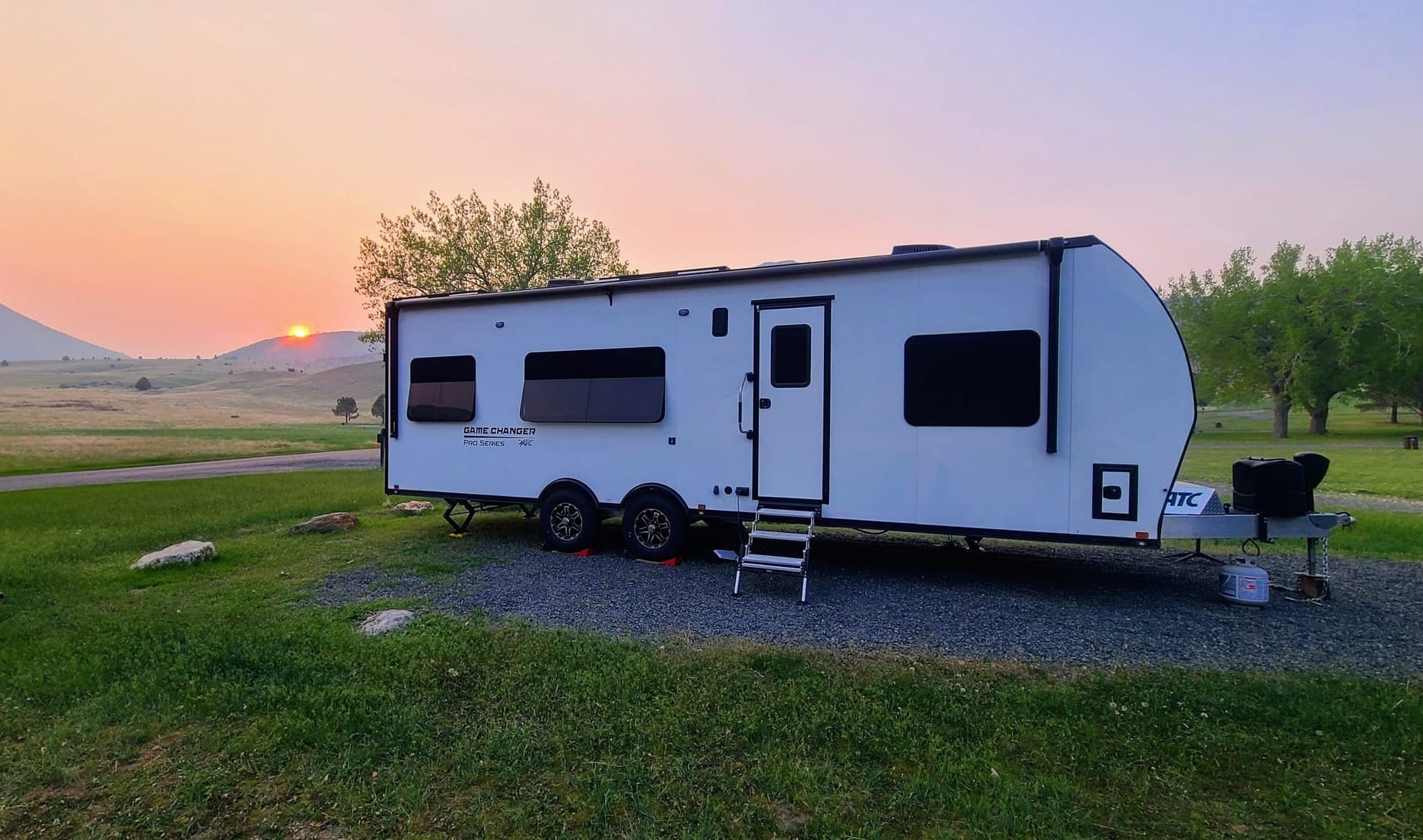
We just spent two months stationary in our home state of Massachusetts, where we got to see family and friends that we hadn't seen in months. We love spending the holidays in MA for this very reason. Even when we've been away for a while, we find that with most of our loved ones, we just pick right up right where we left off. The blog helps; we can tell our stories in-depth for anyone who is interested, so our get-togethers don't end up being a 3-hour-long "tales from the road" session. We welcome questions and definitely like sharing our adventures, but when it's time to hang out with our peeps, we want "RV life" to be just one small conversation topic among the many.
Nevertheless, it's only natural that RV-related questions will arise, but the #1 question we got over the past two months surprised us. The conversation always went something like this:
"How's the road?"
"Good! We came back after about 10 months, and we'll head out again just before New Year's."
"So you're not sick of it yet?"
Or various iterations of that question:
"Oh wow, so you're heading out again soon?!"
"Oh OK, still going then?"
"So you're still enjoying it?"
Perhaps it shouldn't have been too surprising of a question, because when we first launched, the conversation went like this:
"How long will you do it for?"
"As long as we keep enjoying it."
Now, our friends and relatives know that we're taking life one day at a time. It's a strange juxtaposition between planning and flying by the seat of our pants. There is a lot of planning involved in maintaining a life of travel, but to the outsider, it might seem like we are living on a whim. Sometimes we are, but it's more complicated than that.
We think this year's question stems from a few notions. First, it has been two years, which is a substantial amount of time to live an alternative lifestyle, especially to those who opt for tradition. Second, we never actually talk about how we keep things fresh on the road and why we haven't gotten tired of the lifestyle yet. So it leaves people wondering.
That's where this blog post comes in. We want to talk about what we do to keep ourselves from getting sick of constantly RV camping, and also how we keep ourselves from burning out. When we began to think about it, the answers are rather interesting.
The never-ending learning curve
While two years is a substantial amount of time, it's also in some regards a very small blip in the grand scheme of life. We've only just learned how we like to camp, and it took us about a year and a half of traveling over 30 states and staying at a whole variety of campgrounds. We also continue to learn more about RVing on a daily basis. Sometimes it's not so glamorous, like when something new breaks and we need to learn how to repair it. Other times it's learning something new about a place we're traveling, or learning about ourselves and the way we respond to different situations on the road. It's hard to get sick of something that's such an incredible growing experience, especially when we have a constant thirst for knowledge. When we're on the road, we don't need to seek out educational experiences. We naturally find them along the way.
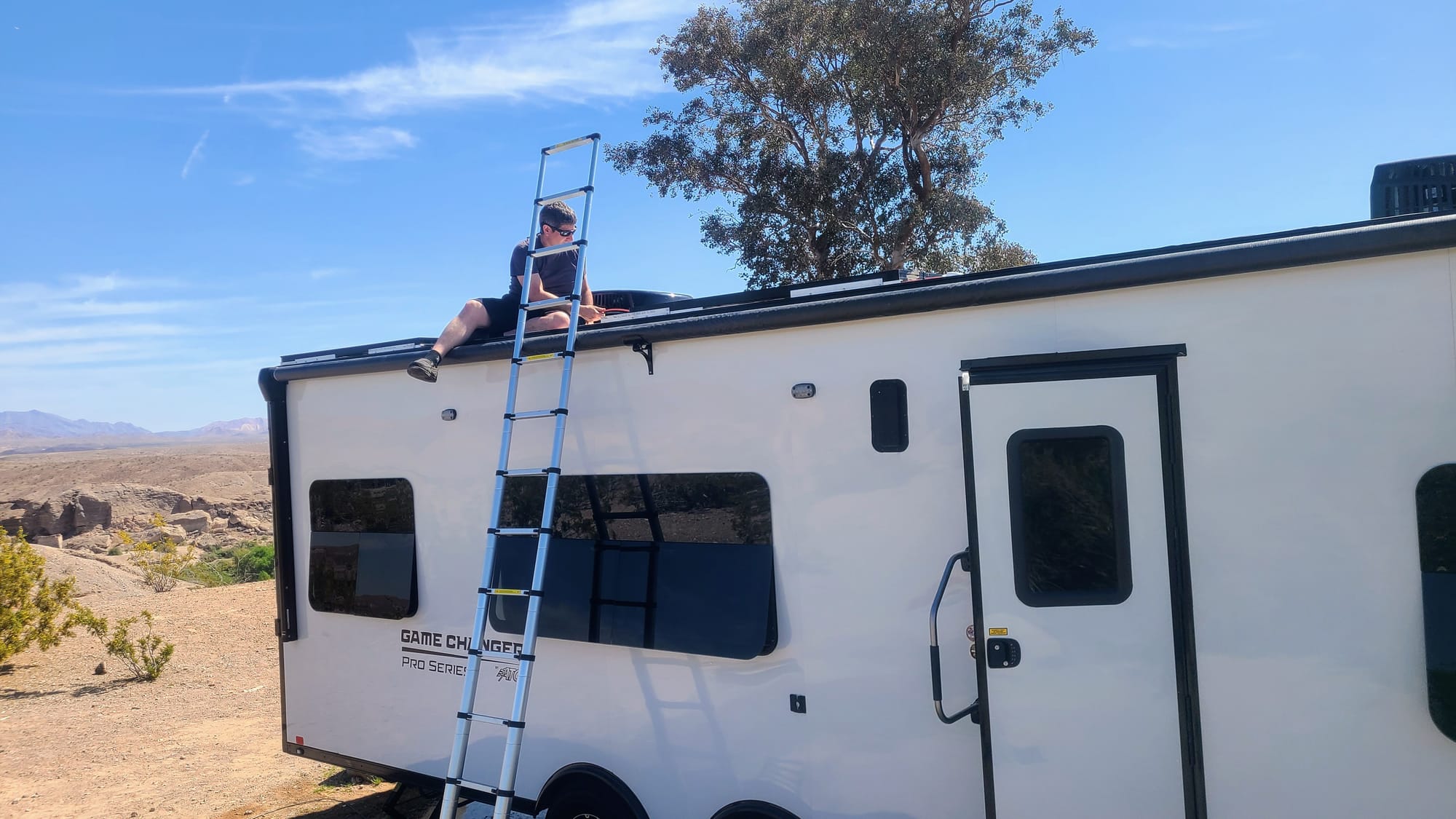
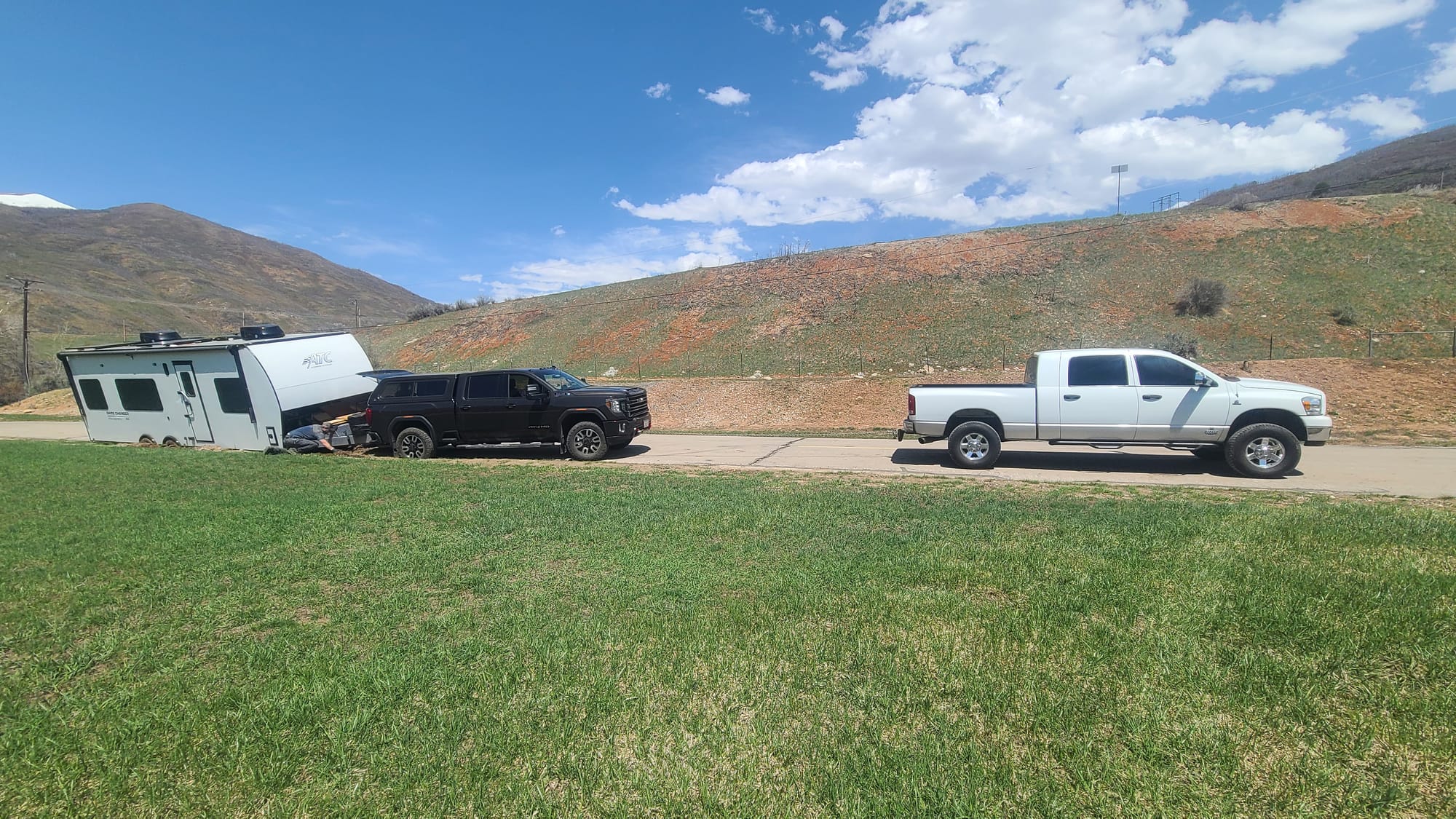
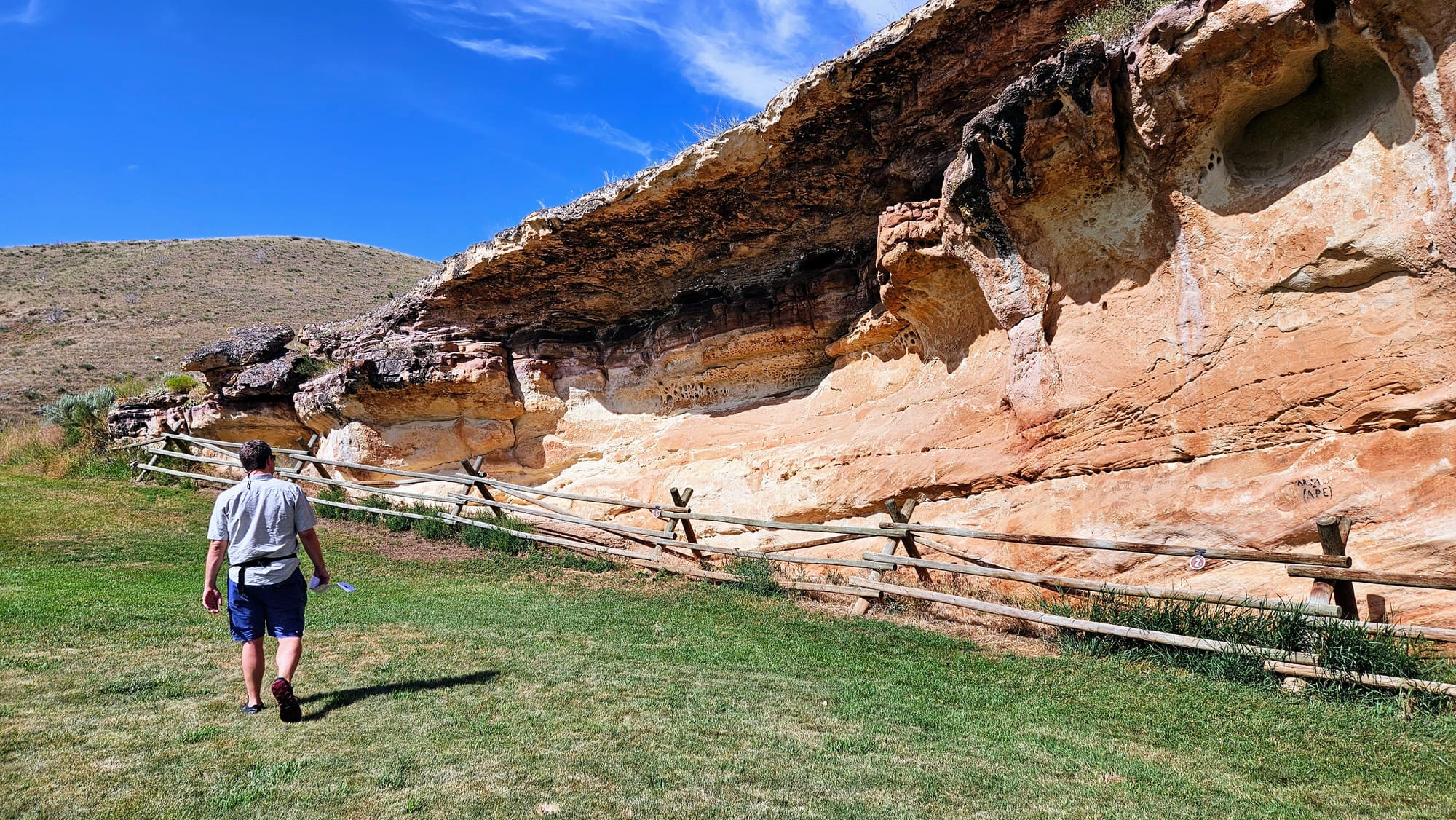
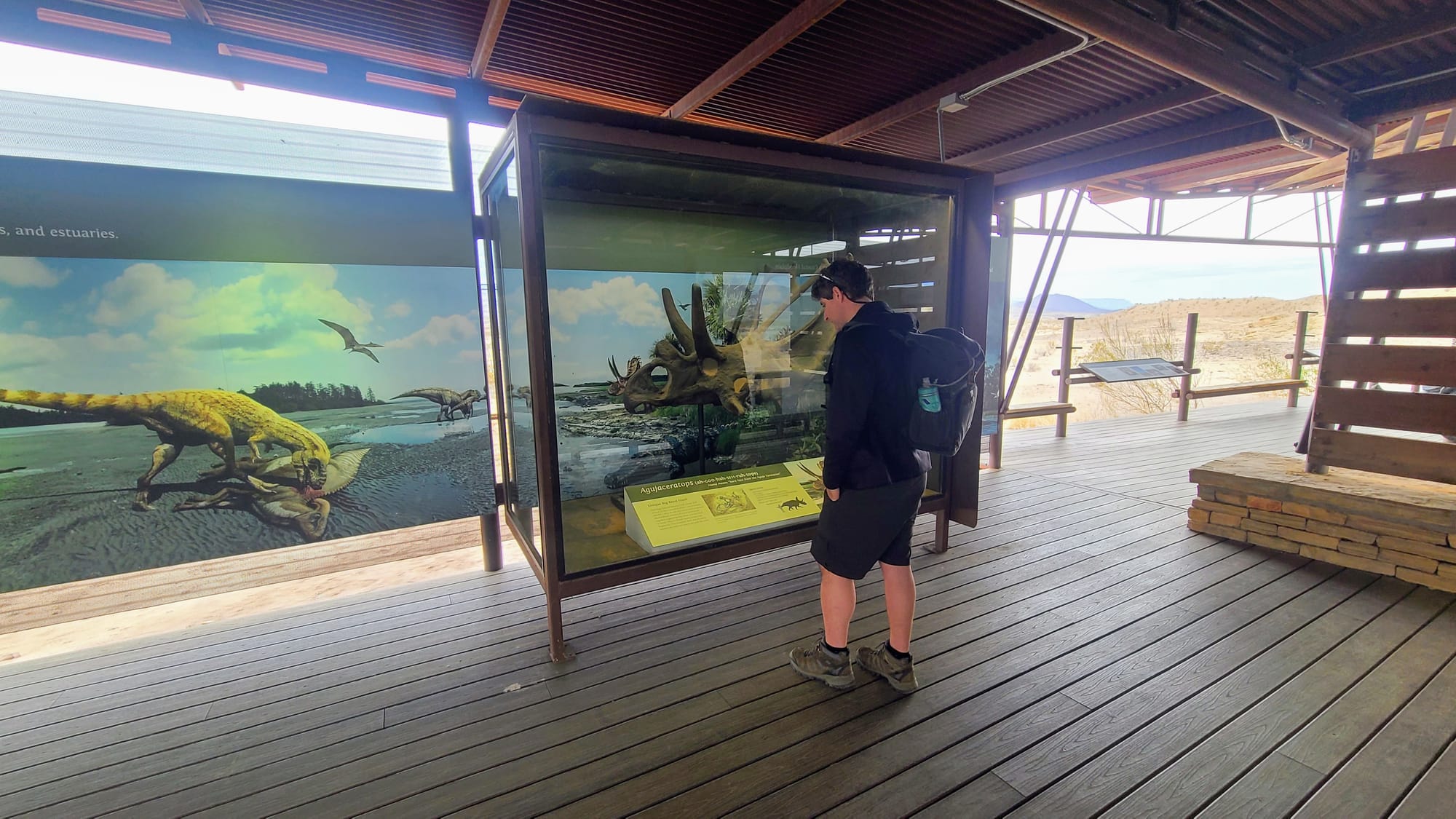
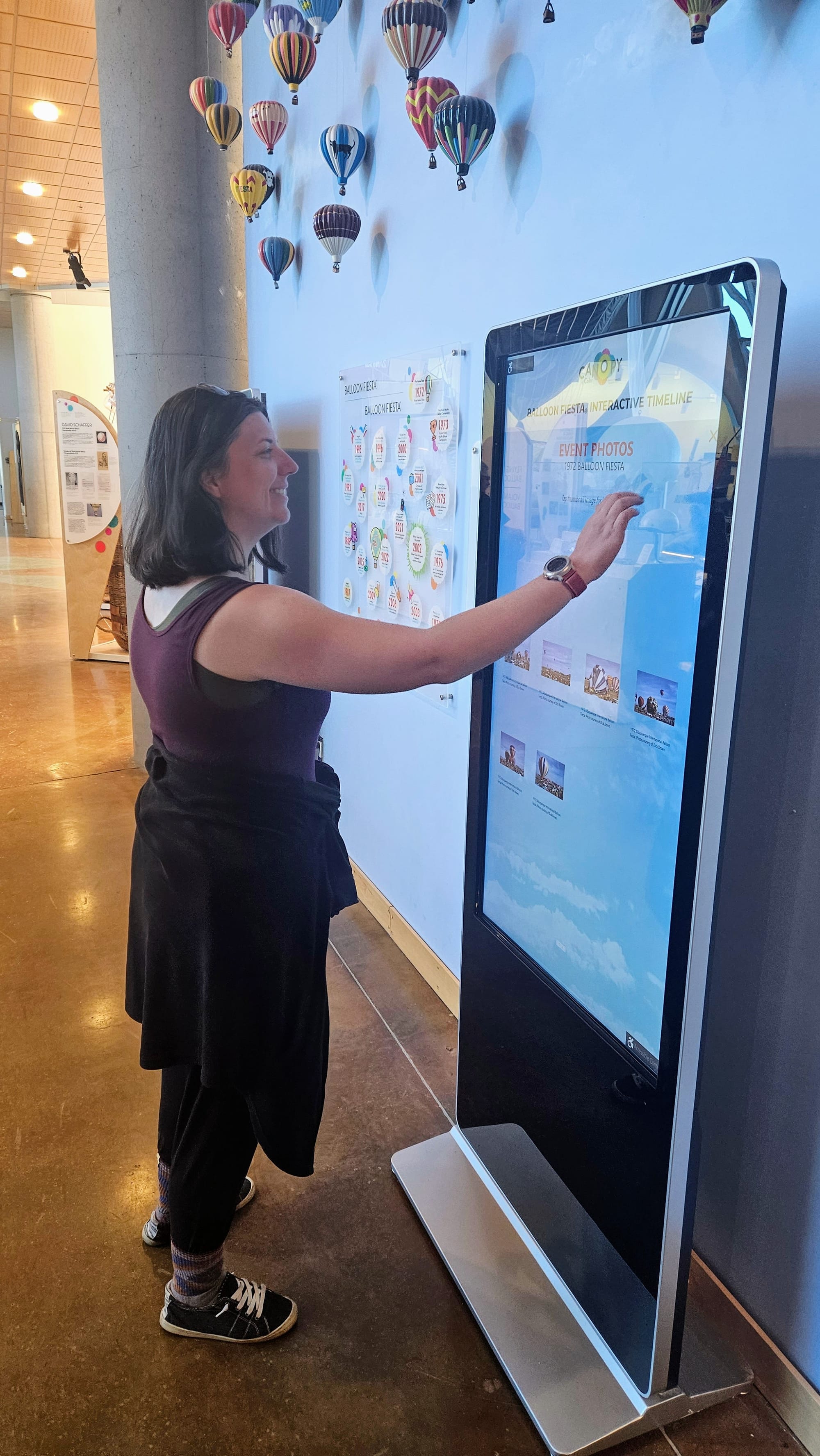
Discovering what we want
We mentioned that we only just learned how we like to camp. It's a process that involves a lot of testing. Before we launched out for our second season of travels last year, we would have bet money on enjoying the dispersed camping experience out west. Only, every time we tried, we felt it wasn't for us. We much prefer having a designated site, whether it's reserved or first-come, first-served. Even if that site has no hookups and the campground has no amenities, we prefer that little bit of security and organization.
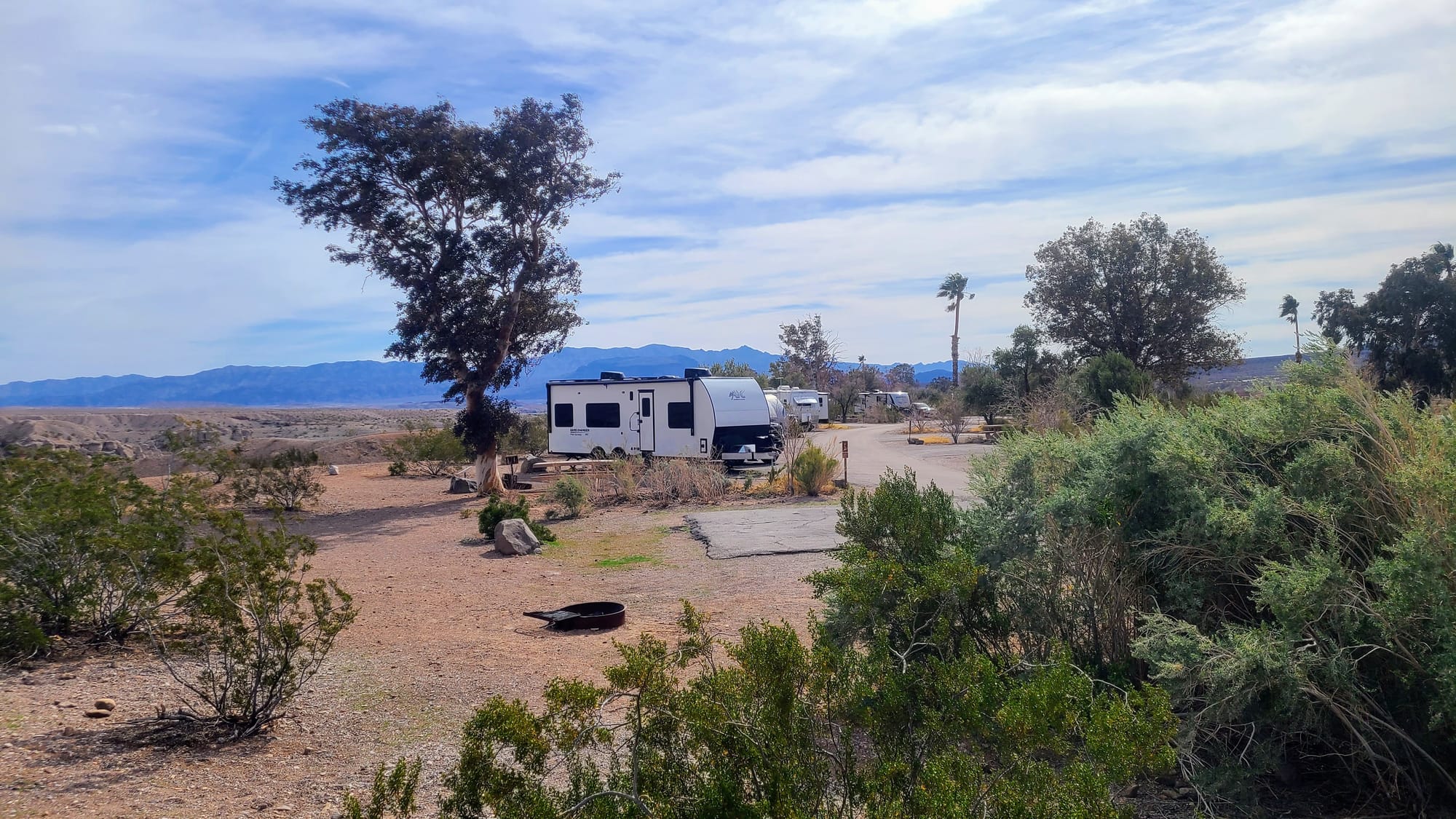
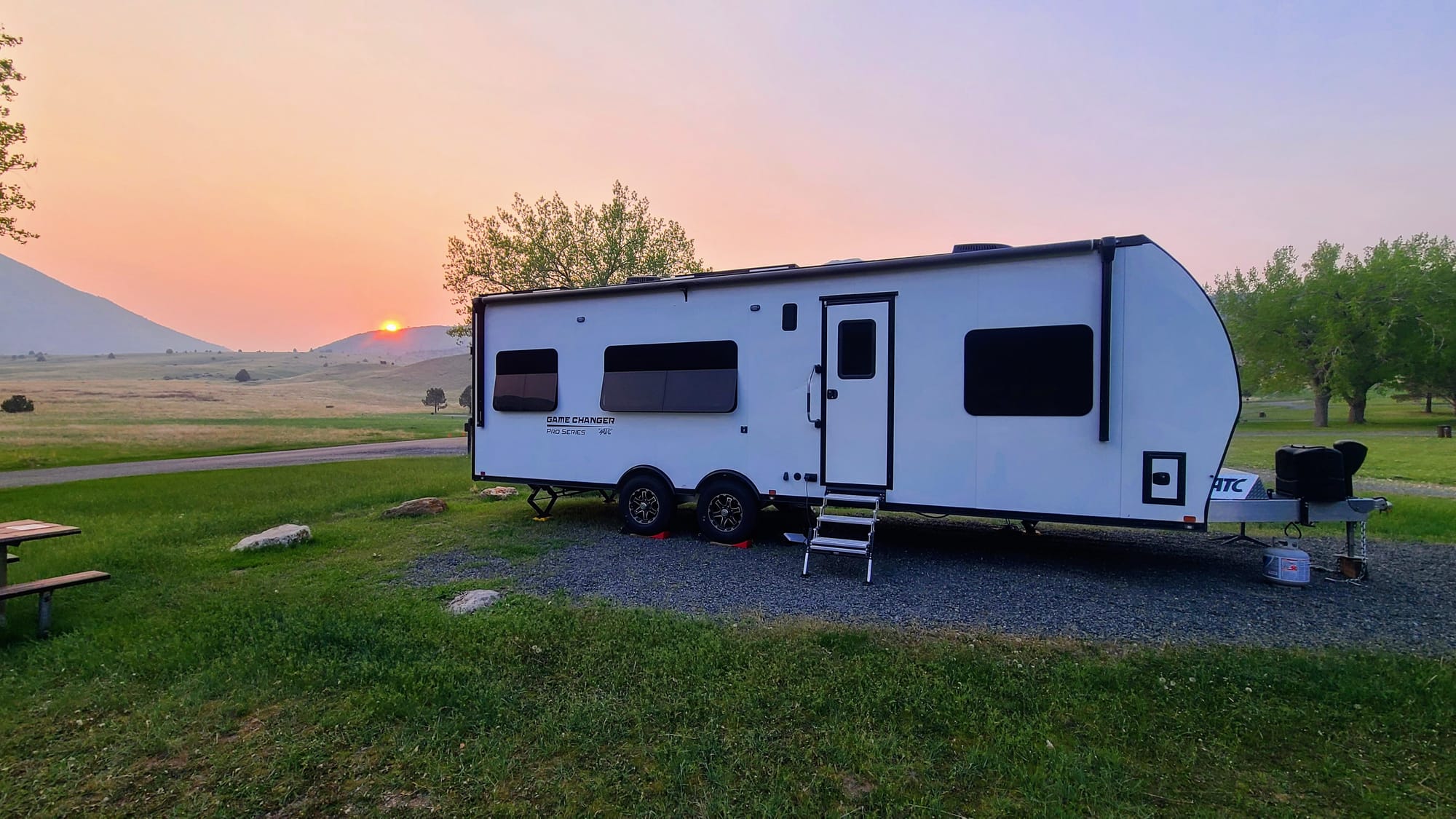
We now know what to prioritize when we book our campsites. 99% of the time, we want a site with no close neighbors. We want a site that has a nature feel, whether that's woods, water, or some other feature. We want a site that's either walking distance to a nature trail, or is in a campground that's walkable. "Walkable" to us means large enough to cover some good ground, without feeling like we'll be run over by big rigs. Not too hilly, but not totally flat and boring either. Stuff to see along the walk is also a plus.
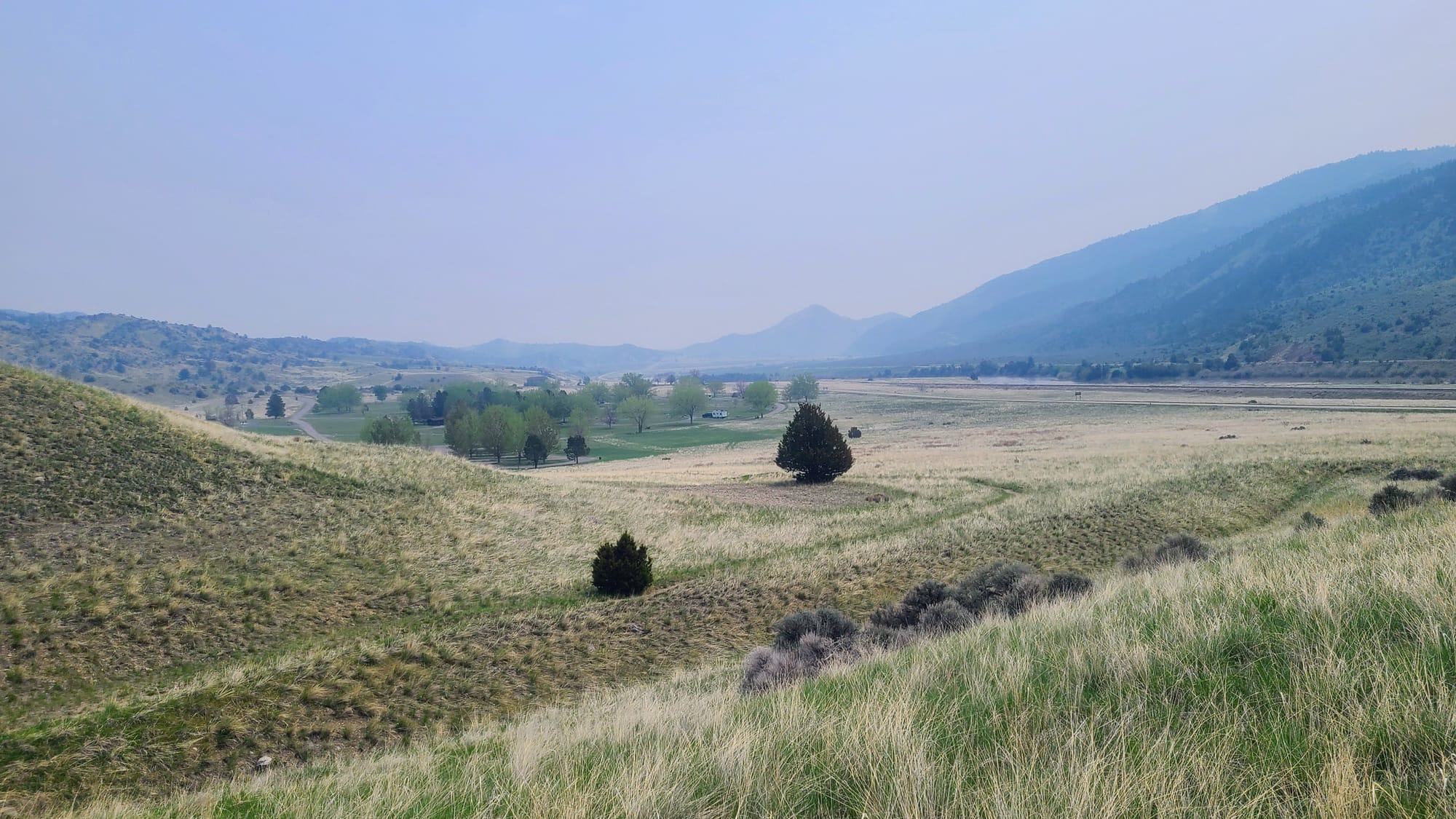
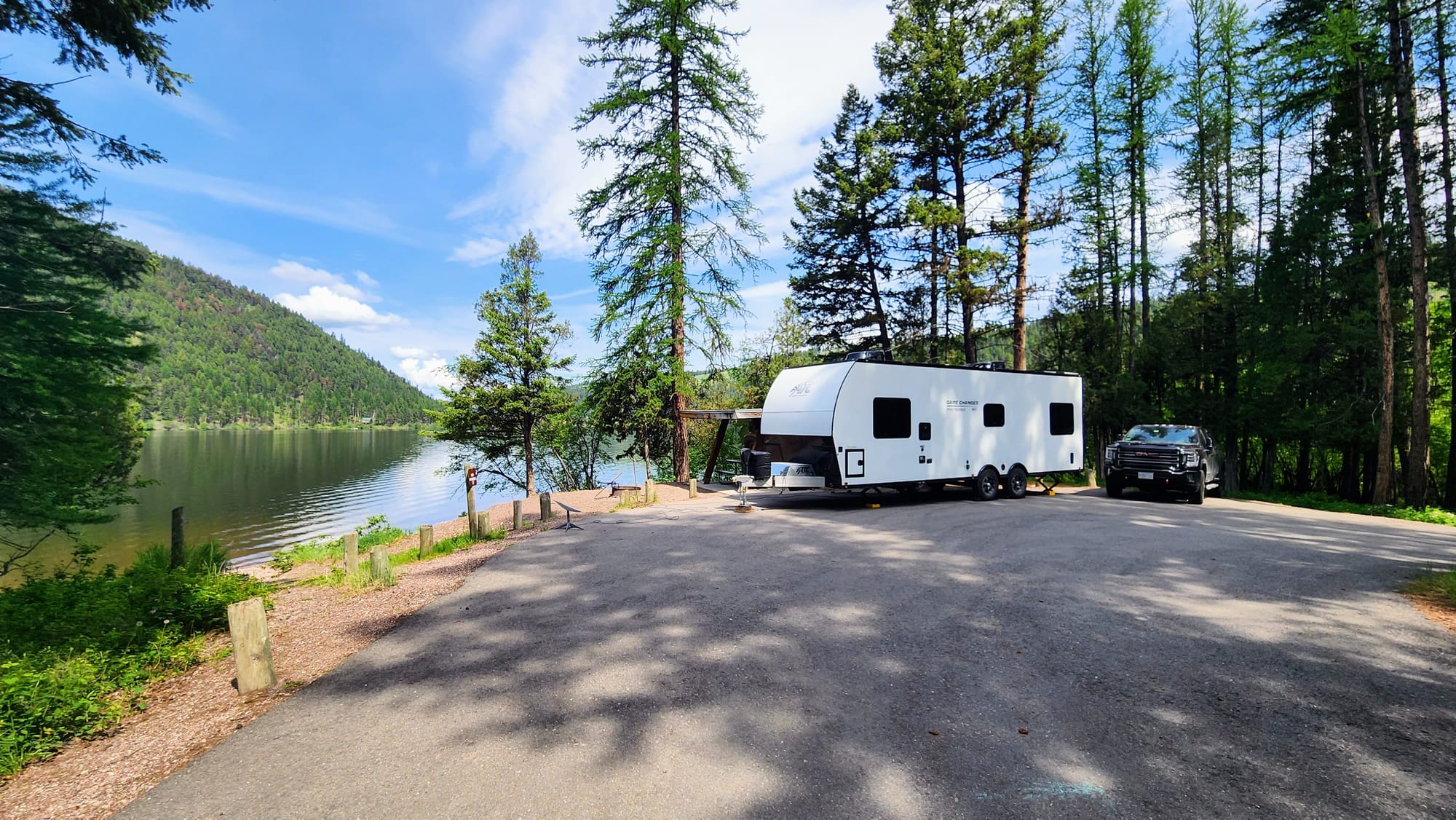
Of course, all that is in an ideal case, but that's what keeps things fresh. When we're booking sites, it's extra invigorating to find that perfect campsite that checks all the boxes. This gives us something to look forward to.
Taking breaks
Despite knowing what our ideal campsite entails, we also try to shake things up. We can love a $20/night dry camping site in a national forest campground, but we don't want to stay in one 365 days a year. We now know to throw in a "regrouping" spot, which usually consists of a full hookup campsite in an RV park or resort. This is when we take full advantage of amenities, often playing games in the game room, ordering food from the cafe, using the athletic courts, or taking a dip in the pool/hot tub. Or sometimes it just means getting work done, doing laundry, and receiving packages. Either way, we have found this change of pace imperative for keeping ourselves energized on the road.
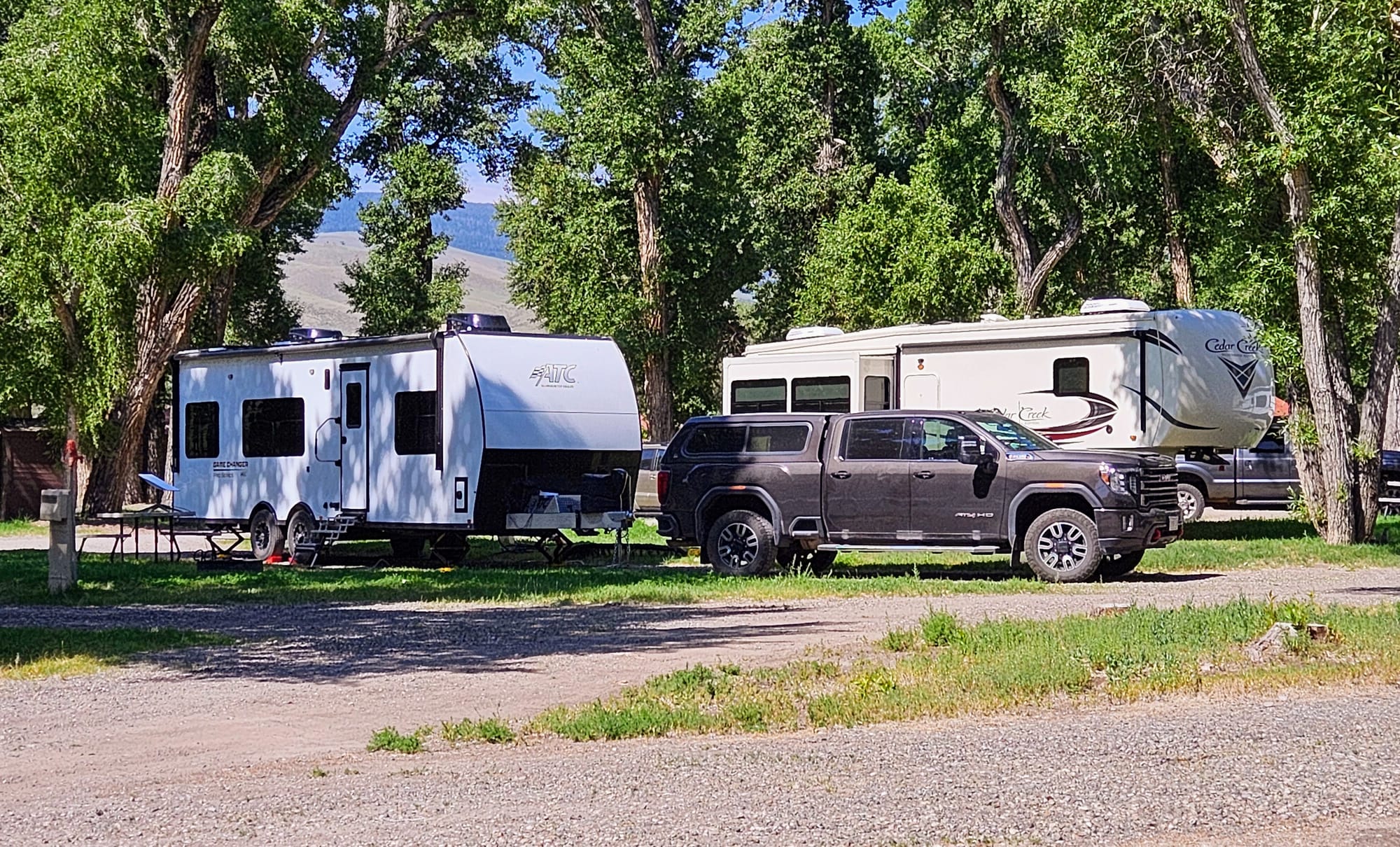
We also like to try new ways of camping. We utilize Harvest Hosts/Boondockers Welcome and HipCamp to stay on private properties. We take advantage of overnight options, typically opting to "Crackerdock" in a Cracker Barrel parking lot (because mmm fried chicken and pancakes), but also sometimes finding unique free overnights that aren't just a Walmart, Cracker Barrel, or Cabela's, like this county park/arena parking lot in Texas.
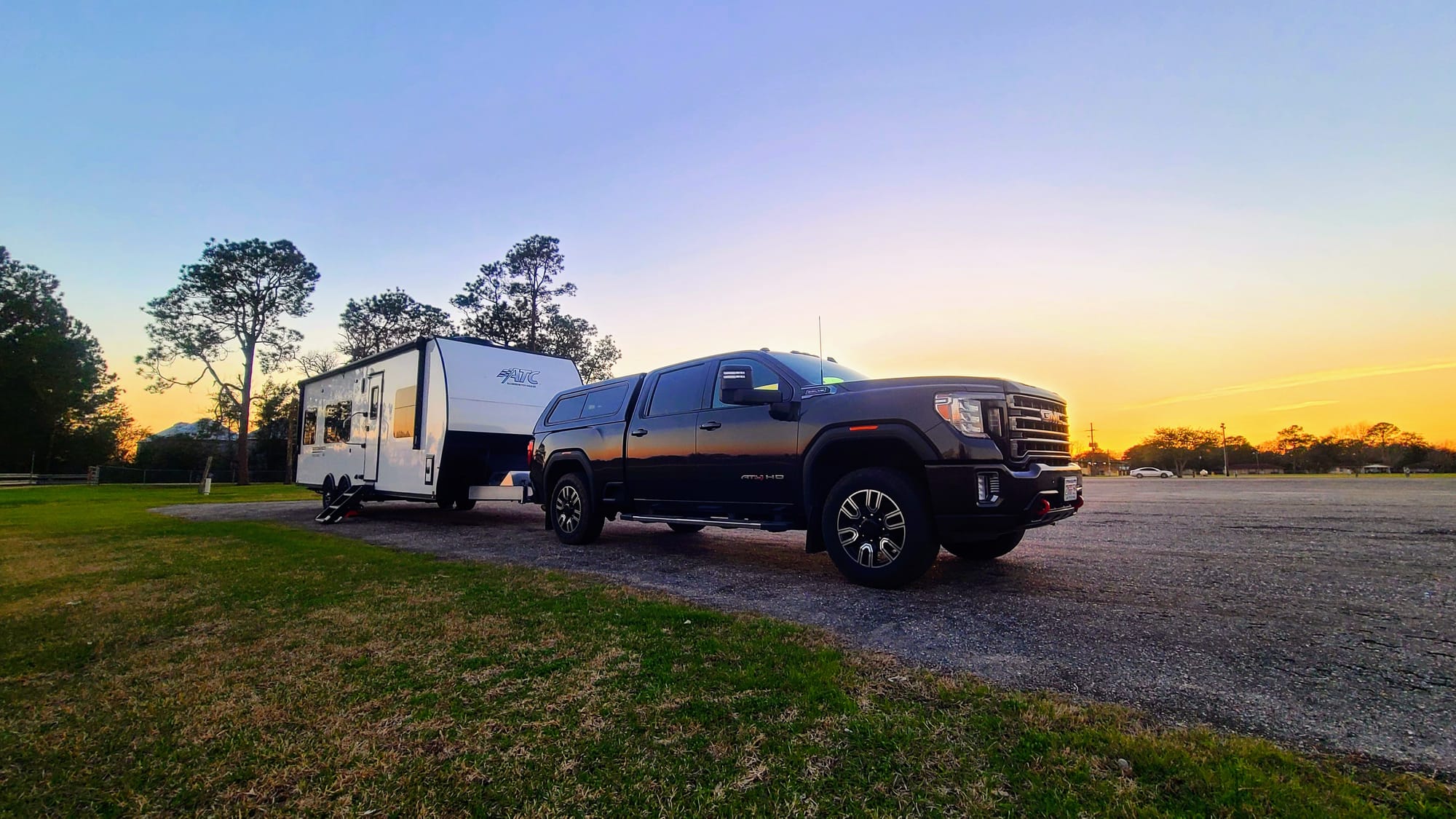
Rolling with the seasons
Anyone who has been following our journey knows that we're not warm weather chasers. Before RVing, we chose to live in New England. This is because we love all four seasons of the year. RVing hasn't changed this one bit, and so when we experience 30-degree snowy weather, we hunker down and embrace the cozy peacefulness. When the moderate temperatures move in, we dive into the quintessential camping lifestyle, spending ample time outdoors, pitching our tent, and opening our patio. When the hot summer heat arrives...well, it's hard to roll with this weather, we won't lie. It's our least favorite, but we try to find ways to make the most of it, like taking advantage of the cooler evenings, or finding relief in any water source we can.
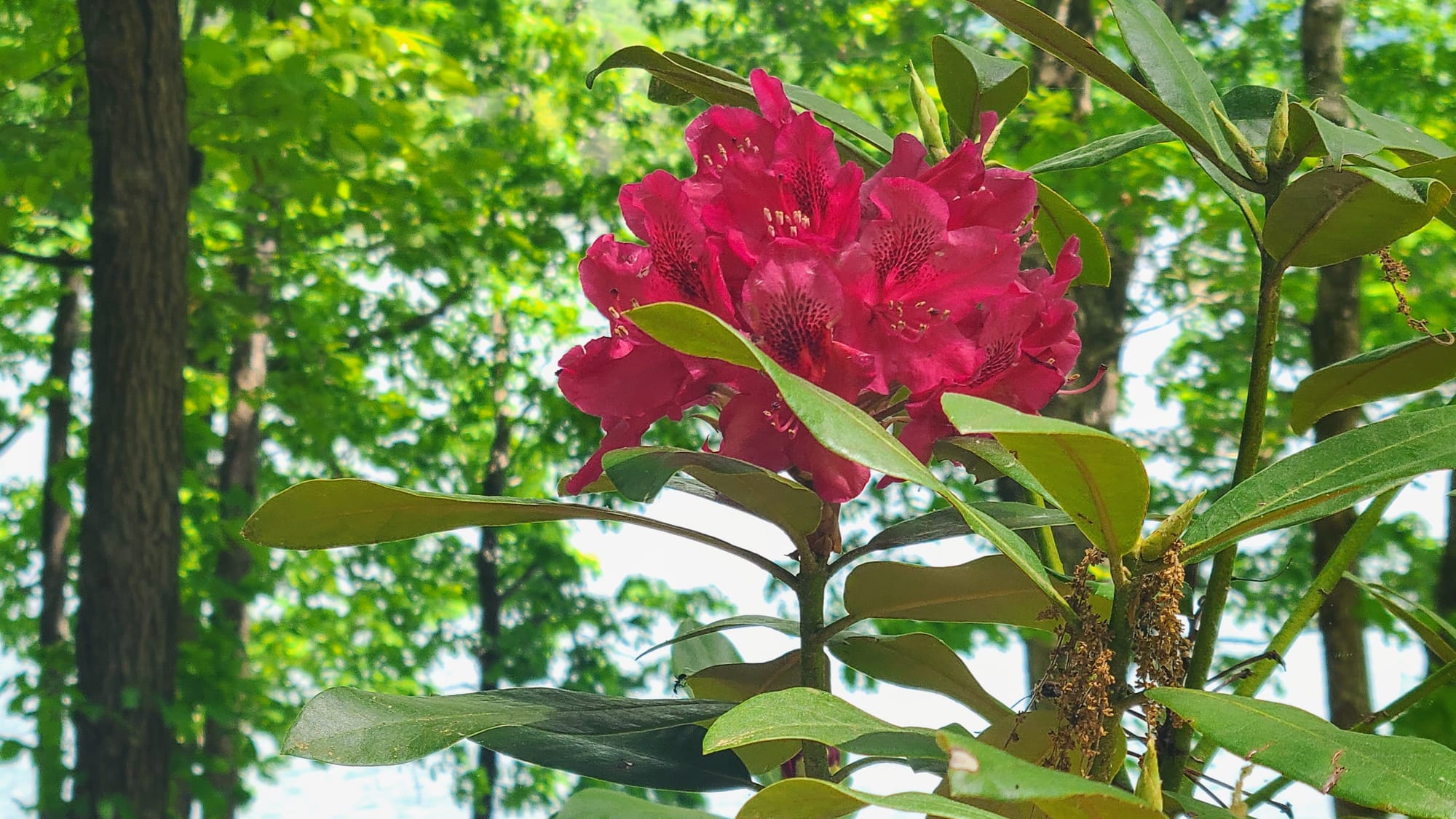
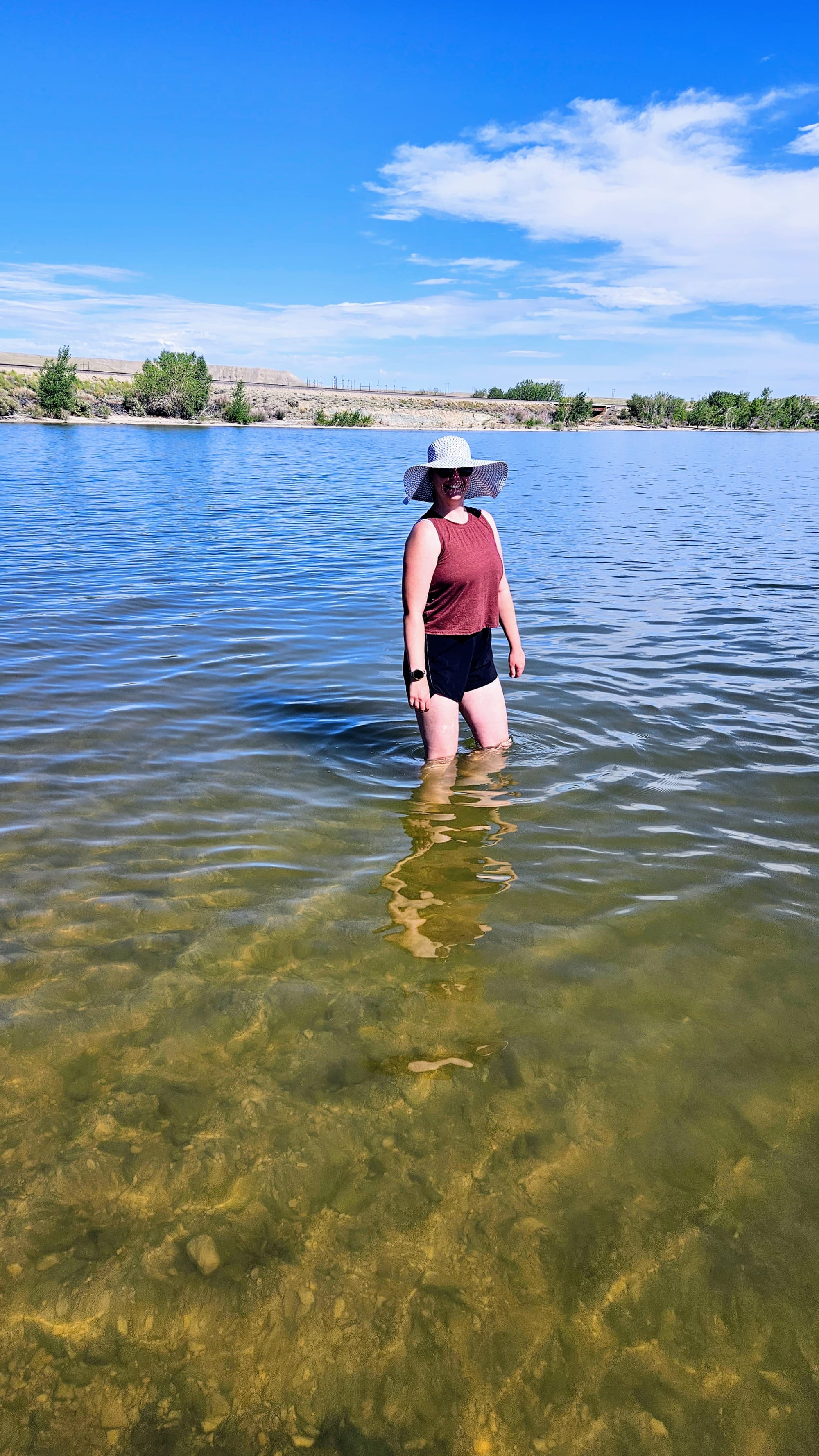
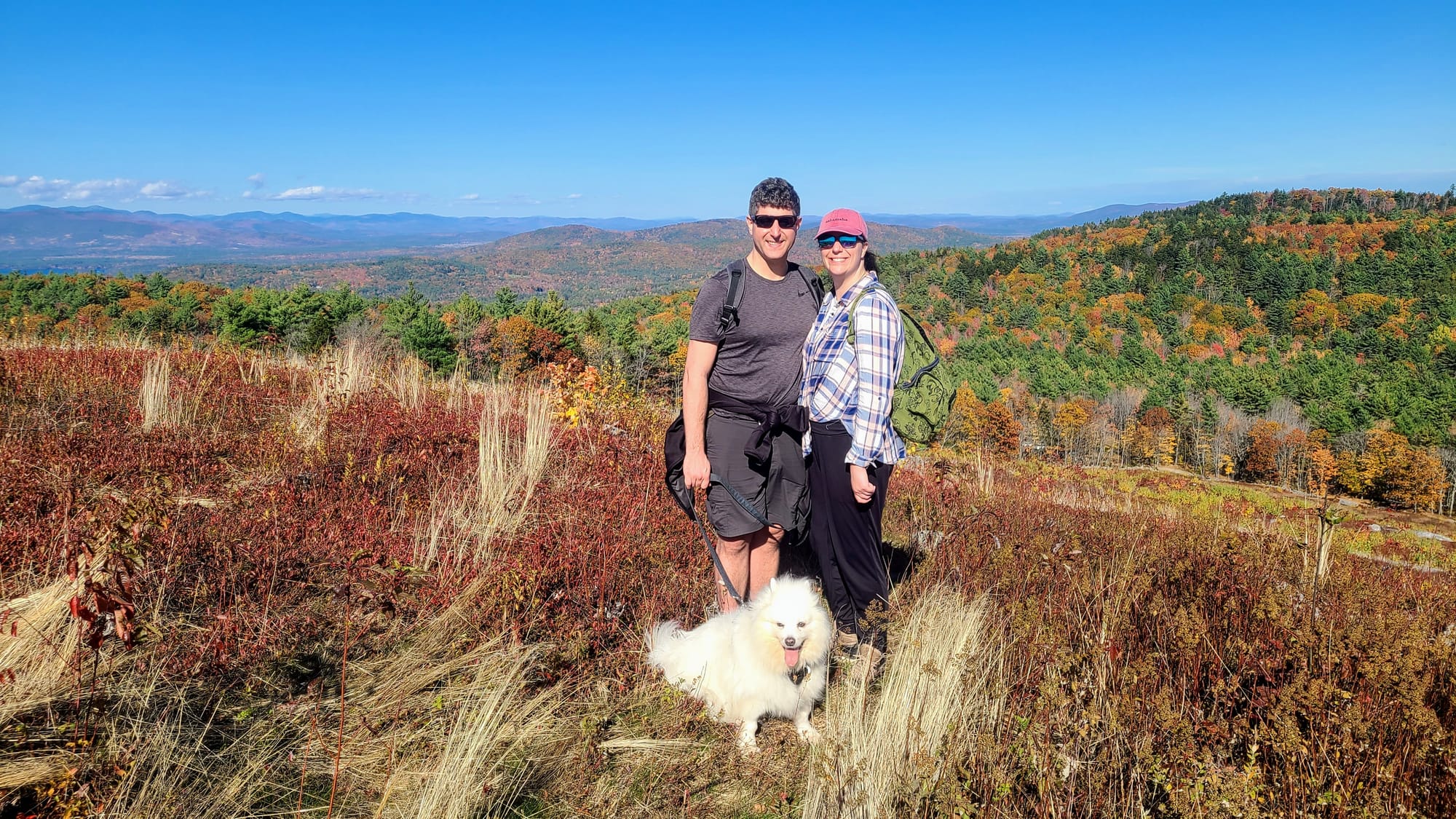
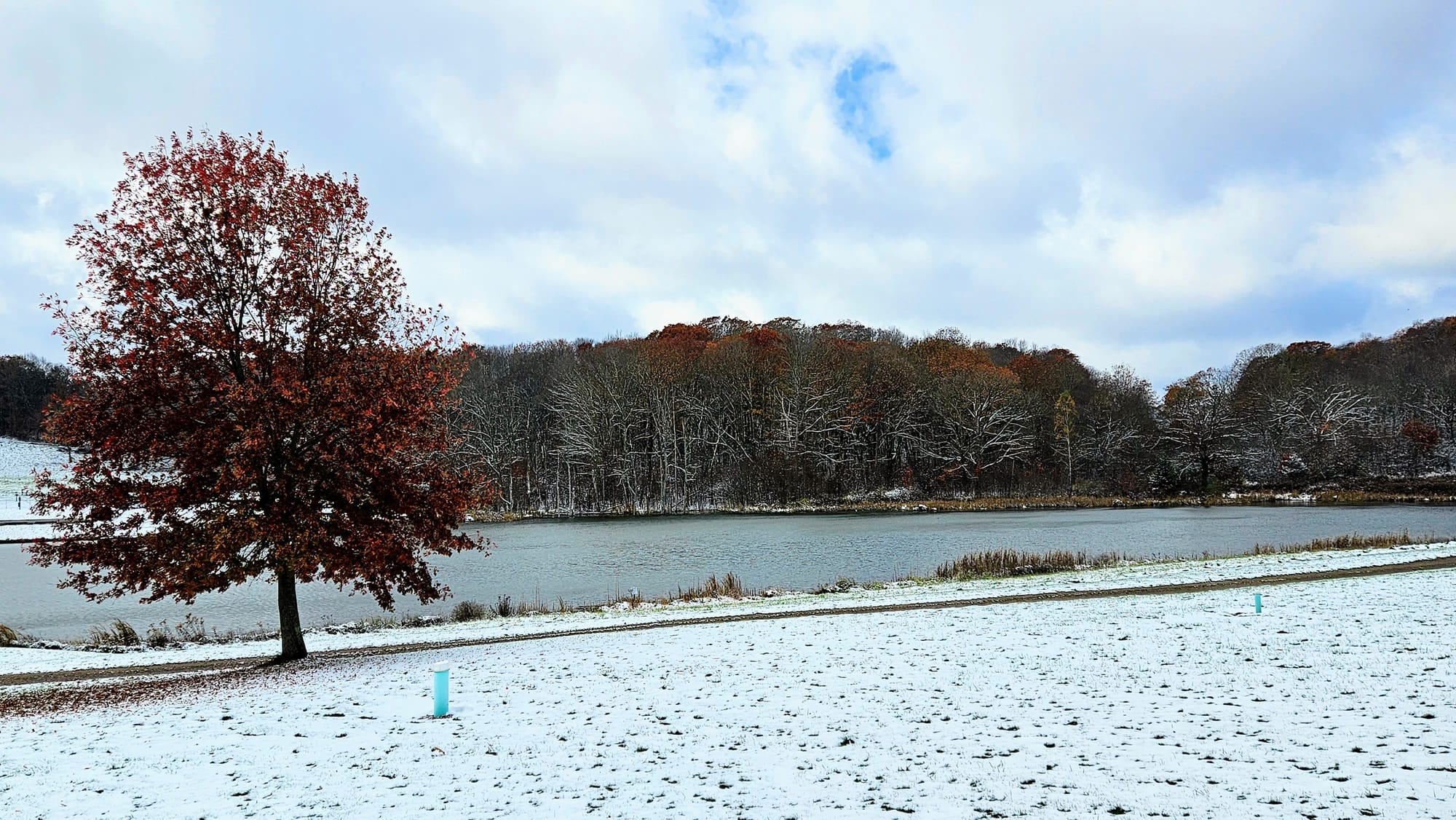
Not only do we experience a whole array of temperatures, weather, and climes, but we also get to experience constant changing landscapes, which to us is one of the best parts of the RV lifestyle. Mountainous terrain is our favorite, but we also love an oceanfront campground or the sunny desert.
Our speed of travel
One of the best parts of full-time RV life is that we have the flexibility to camp the way we want to. We have met RVers that cover the whole spectrum, from spending 6 months or more in the same spot, to those who spend only a few days in one place before moving on. We learned quickly that we fall somewhere in the middle. We don't like lots of short stays in a row because we start to tire, and it's hard for us to get work done. Staying a week in most places is sufficient, but sometimes we plant ourselves for 2-3 weeks or more, so that we can fully immerse ourselves in a location. This doesn't necessarily mean we stay at the same campground, though. For instance, last year when we were in the Black Hills of SD, we spent part of the time at a KOA and part of the time in a National Forest campground. We enjoy the variety.
We travel at a fairly fast pace, most of which is out of necessity because we do return home to MA at least once a year, but we try to keep our travel days short. Distance-wise, our sweet spot is around 200 miles. Realistically, we usually clock somewhere between 250-280 miles, but this varies. Ideally, we aim to cover enough ground to feel like we've entered new territory, but we're not spending the whole day in our truck. We also ensure that we'll have time to explore after we get to our new campsite. This has become tradition, as we're always looking to get our bearings and also stretch our legs after sitting for a long time.
We typically stick to interstates and highways when we travel because we're a really long rig and it's safer, but we also love a good scenic drive day when we're comfortable enough to have one. Either way, we've found our go-to drive day activities that break up the monotony of the travel. Shorter drive days allow us to take breaks as often and long as we need to, but we also don't feel like we'll need tons of breaks. We use our drive time to catch up on podcasts and audiobooks. We also use the time to talk and engage with each other – something that's always been a perk in our life as a road tripping couple. We also like the energy of all four of us being in the truck together. How fortunate for us to be able to spend so much quality time with each other and our pets!
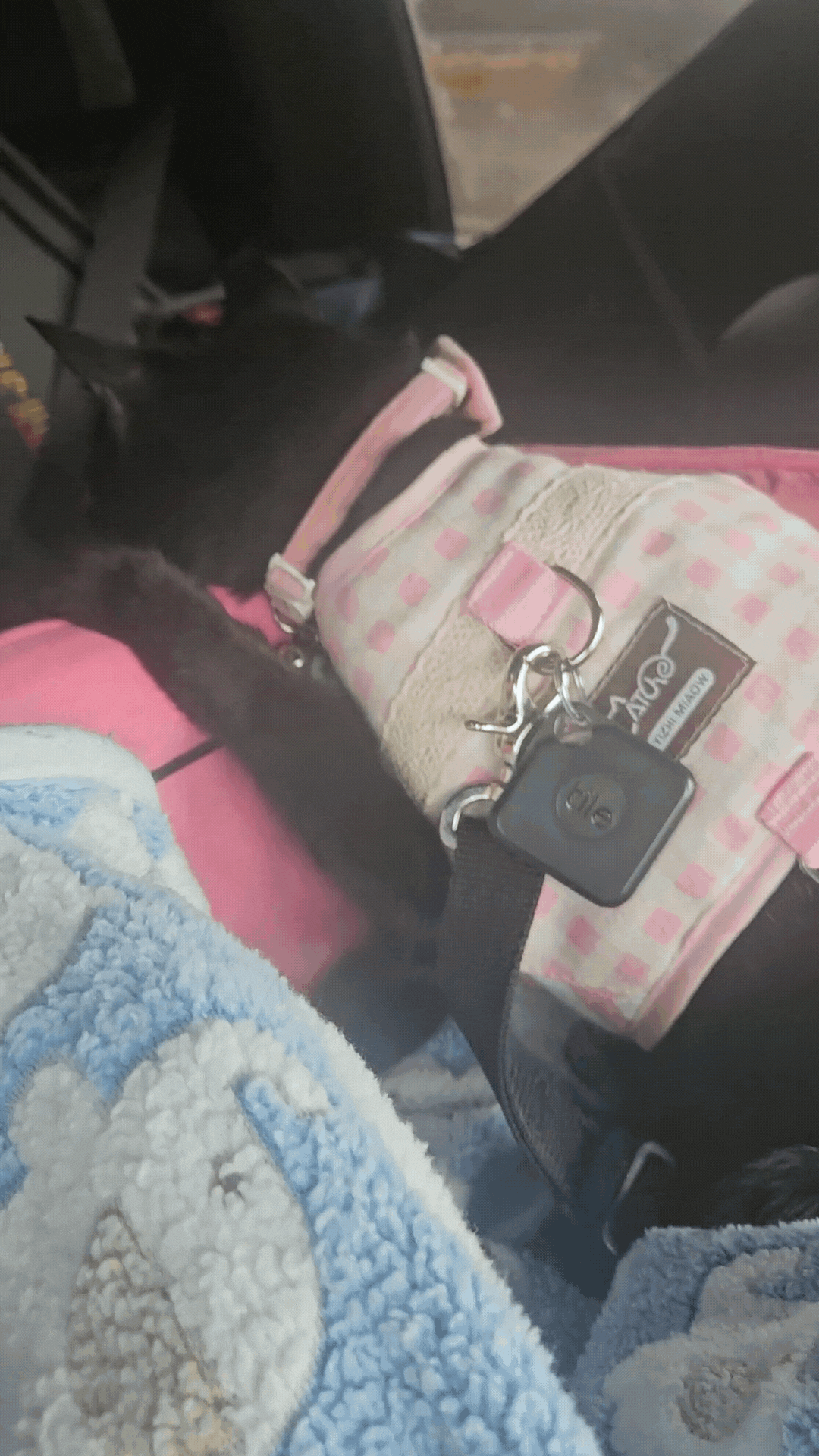
Because we cover a decent amount of ground each year we travel, we always have something new to look forward to. Even if we return to a place we've been before, there is more to explore and more adventures to be had. It's hard to tire of a lifestyle that brings so much excitement. Then of course, the other side of that coin is having too much excitement where we burn out, or in our terms, "feel oversaturated." Balance is the name of the game. We try to maintain balance from year to year, where last year we tackled numerous bucket list items, but this year, we'll keep things lower key. We maintain balance day to day: Drive days vs. stationary days, big destinations vs. little local areas, and rustic amenity-free camping with practical resort camping.
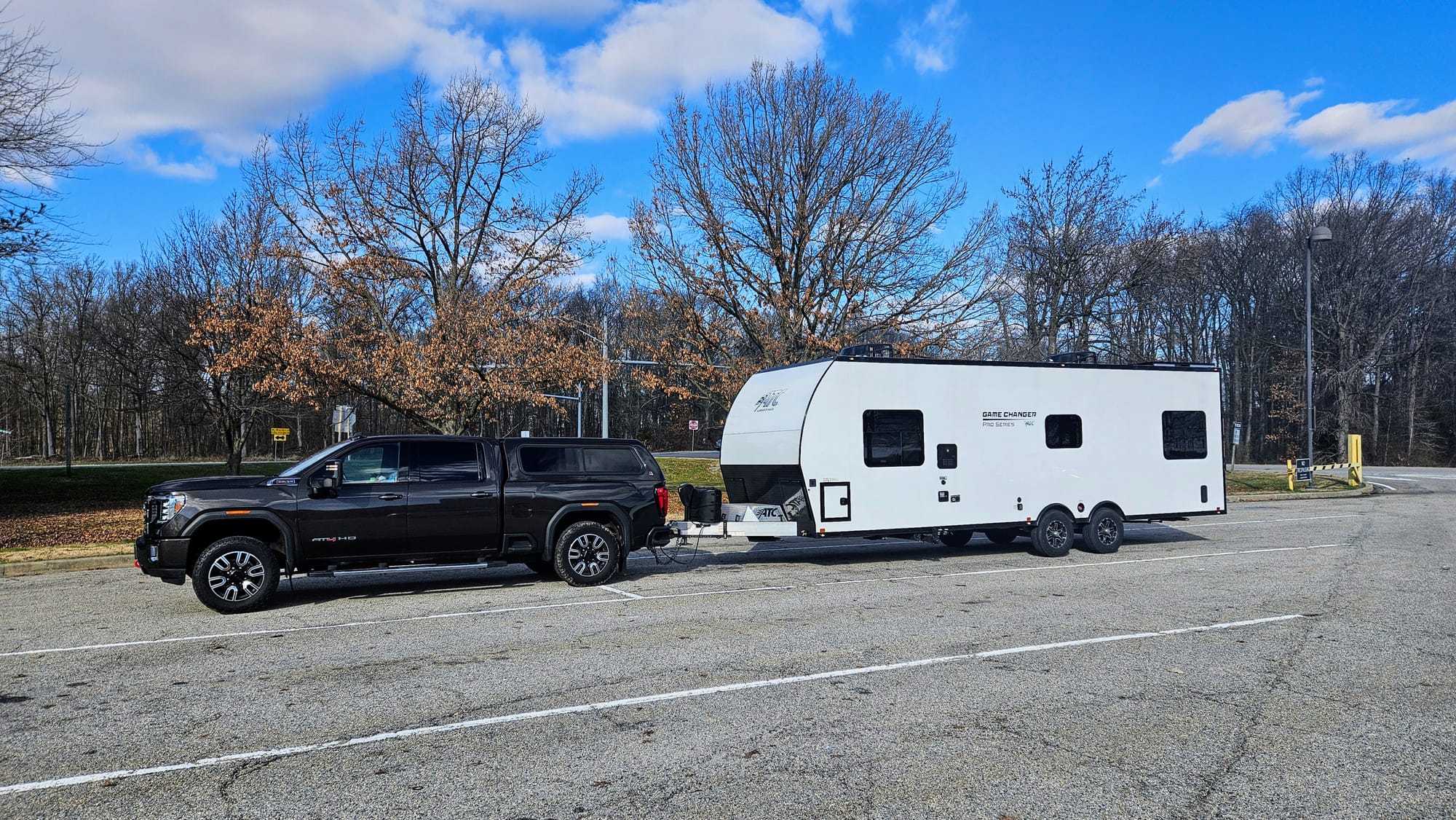
We also find balance by embracing the simplicity in this life. We make sure to keep stimulation low, which is probably why we prefer quiet campgrounds most of the time. We also set up our lives to not be surrounded by "too much" – too much stuff, too much work, too much boredom, etc.
Making it count
We live a relatively minimalist life, not just because we live tiny, but because we try not to buy what isn't going to serve us. We try to operate on a "one in, one out" mentality, where we only buy things when we're replacing them. (Tell that to Nicole this past month, who suddenly got it in her head that she needed several new pairs of pants). This mindset does a couple things. It helps us embrace experiences over things. This is a big mantra in the nomadic life. It also helps us really enjoy everything we buy. Some of it might seem unnecessary, but we're not minimalist to deprive ourselves of items that will bring us joy. We also try to not limit ourselves just because we live tiny. After a year and a half of eyeing the famous floaty, we finally bought one. This was after months of debating if it would be worth the money and space. "But we don't have that many water accessible sites." "But the weather won't always cooperate." Turns out, none of this mattered, because once we got the floaty, we prioritized waterfront sites. And when the weather doesn't cooperate, we're not lamenting the fact that we bought a $100 floaty. We're usually lamenting how much propane or air conditioning we're using, but even this doesn't seem so bad when we break down the numbers.
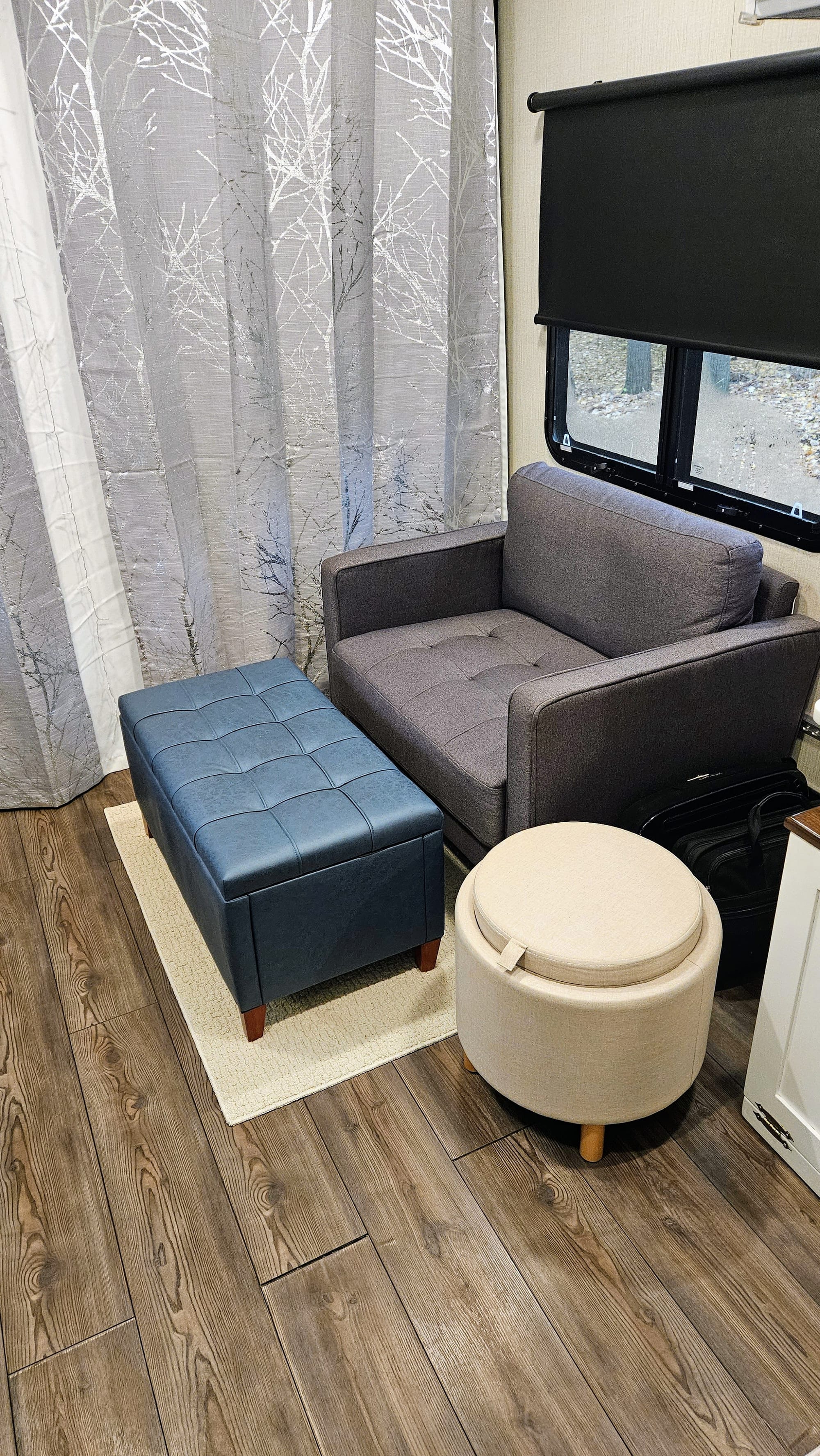
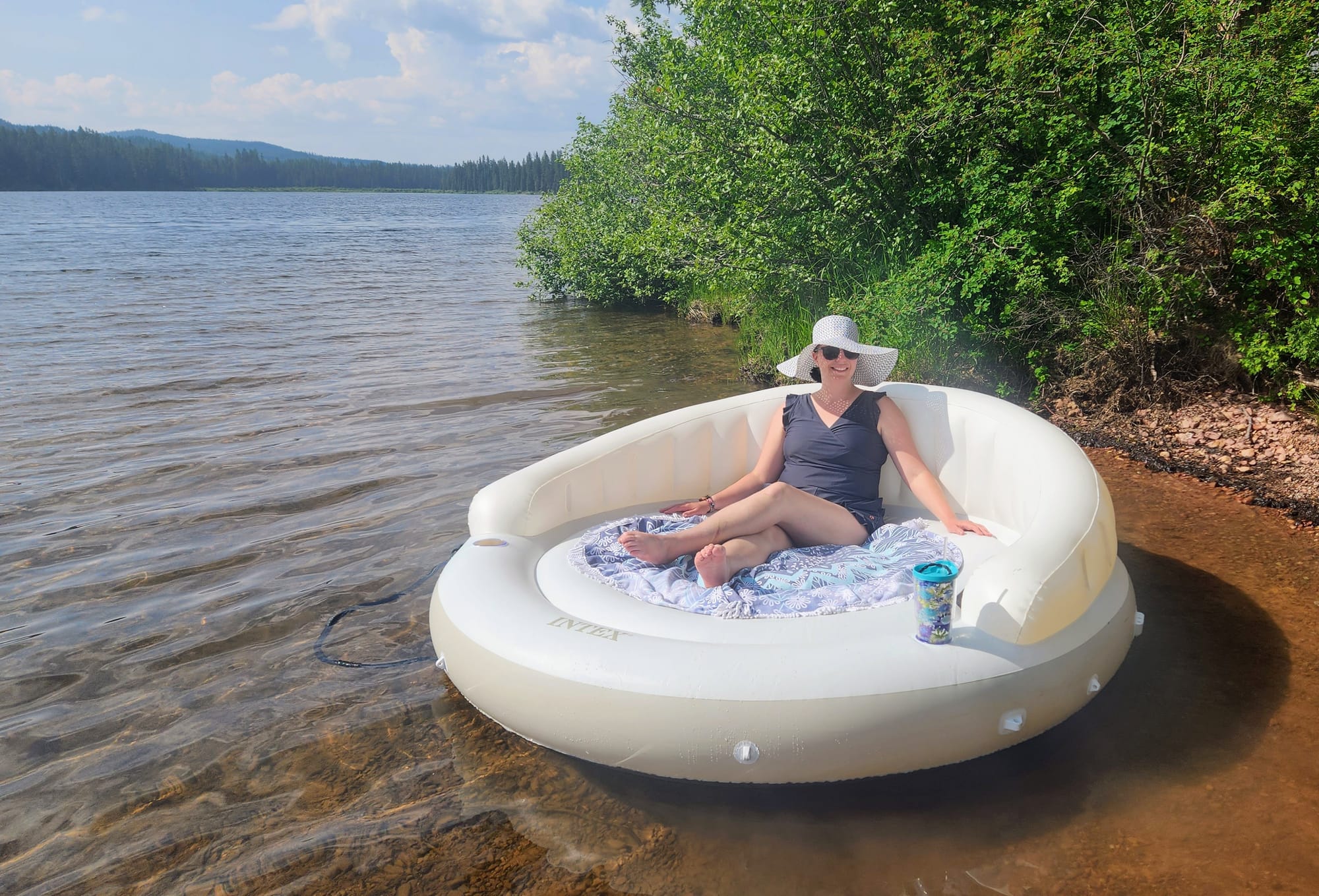
We can only hope that, when the time does come to settle down in a house, that we will take these minimalist lessons and apply them to our new life. Just because we'll have more space doesn't mean we'll need to fill every inch of it.
Stationary time
We place a lot of importance on our time at our home-base. We don't own any property at this point, and so we park in Nicole's parents' yard. It's a constant in our lives when so many other things seem unknown or up in the air. This is why we aim to return every year around the holidays. We need that time to reset and reassess our needs as nomads.
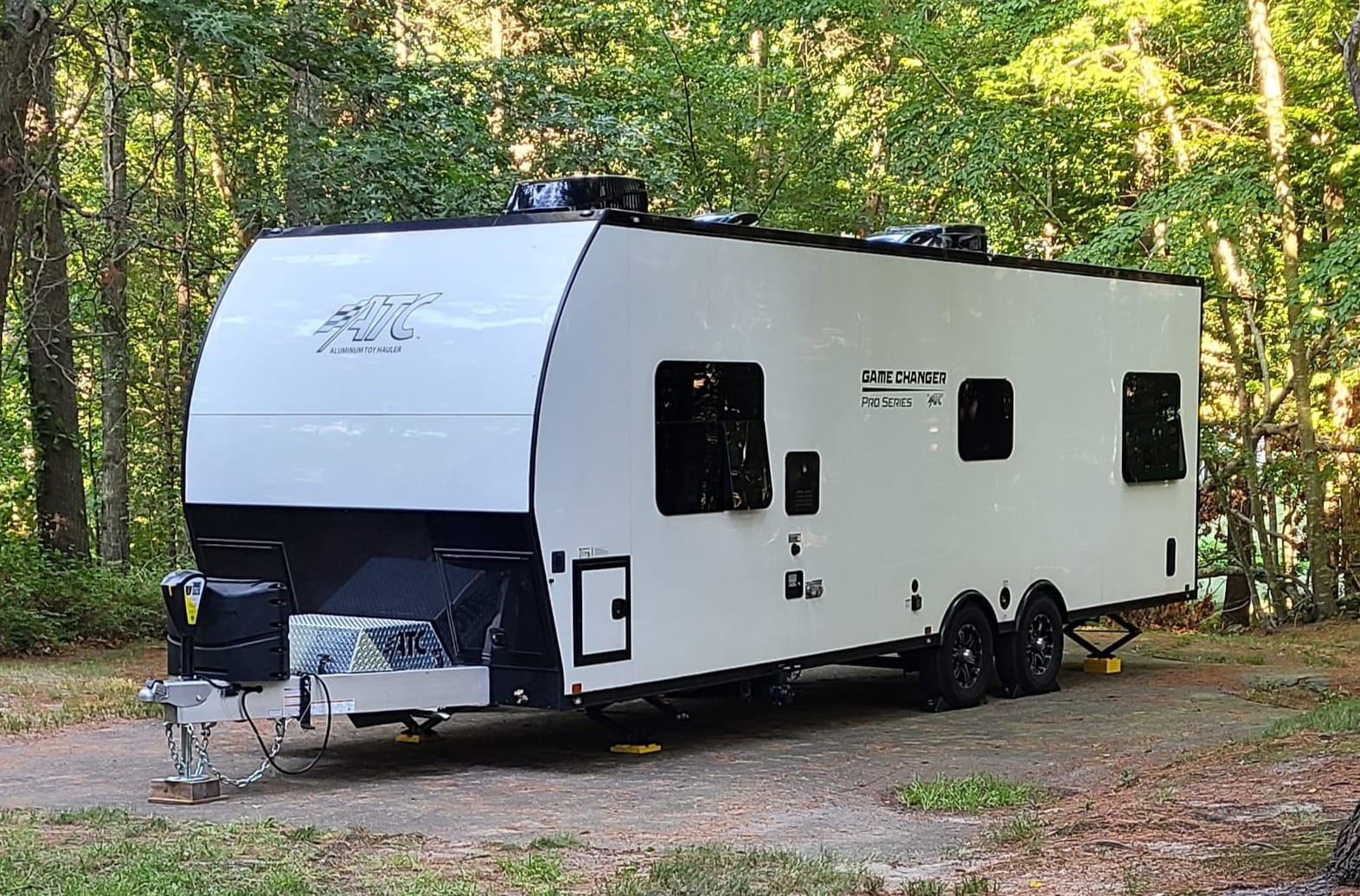
Besides the perks of getting to stay near family, getting packages, being near our old haunts, and having a space to do mods and repairs, we also appreciate the break from campgrounds. No loud diesel engines passing by or people walking through our campsite. No worries about our window shades being open when a neighbor is parked 4 feet away. Instead, our neighbors are the same neighbors Nicole grew up next to. The loudest sound is typically their wind chime, or if we do hear a diesel engine, it's usually because a truck is coming up the driveway to bring us our packages. The most surprising perk, however, is that it reminds us how much we love living at campgrounds. Whenever we've been stationary for a long time and then head to our first campground, we feel like we're home again. The RVs lined up in their sites, the smell of burning campfire wood, the neighbors smiling and saying hello — this is our world. We can't tell you how many times we're out somewhere and smell wood burning and say to each other, "Ahhh, smells like home!" We laugh about it, but it's true. We think 24/7 camping is quite spectacular, and someday, when we do tire of the constant travel, we foresee RVing as still being a big part of our lives. And our future home? We'll make sure we prioritize the same things we've come to love about our campsite homes: Lots of space and privacy from neighbors, nature surroundings, walking distance to a nature trail, and for old time's sake, probably some sort of firepit. But we'll cross that bridge when we get there.


